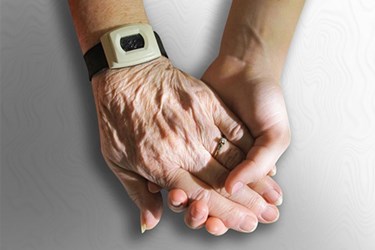Self-Reporting Tool Enables Improved Monitoring Of Dementia
By Chuck Seegert, Ph.D.

Researchers from Indiana University have developed a way to effectively monitor the progression of dementia from the home environment. The new method tracks a patient’s self-reported changes in mental state and accurately gives insight into how dementia may be changing over time — something that was previously only possible in an office- or hospital-based setting.
As the success of medical and healthcare technologies increases, the elderly portion of the population becomes greater. With this increase in older patients comes an increase in the quantity of patients that suffer from dementia, a disease that can be challenging to diagnose. A standardized and reliable method of identifying these patients at appropriate times could help treat the disease. Additionally, diagnosing the presence of dementia and then monitoring it as it is managed through various pharmacologic and non-pharmacologic treatments would be helpful.
The Healthy Aging Brain Care (HABC) monitor was designed to address these needs, according to a recent press release. The monitor was developed at Indiana University’s Center for Aging Research and was originally designed for use by healthcare providers. The HABC monitor measures 27 items on a four point scale to evaluate functional, cognitive, and psychological symptoms. Taking multiple measurements over time has been likened to taking a patient’s blood pressure and then observing changes that may impact a patient’s health.
Previously validated for caregivers, new work by the Indiana University team has demonstrated that the monitor can be used by the patients directly to self report symptoms, according to a recent study published by the team in Clinical Interventions in Aging. In the study, a total of 291 patients were analyzed for self-reported analysis of their symptoms. Results showed the monitoring method illustrated high reliability and validity as a practical, multi-dimensional tool for measuring symptoms. If a patient suspiciously reported a perfect score, the results could be verified by a follow-up phone interview with the caregiver.
Some of the cognitive measures the tool evaluates include the patient’s ability to correctly identify month and year, and the ability to memorize, according to the press release. In addition to cognitive evaluation, functional assessments are performed on items such as planning and preparing meals, using tools, and performing household chores. Finally, a psychological portion of the monitor looks at depression, anxiety, and other mood-related measures.
Understanding the impact of neurodegenerative diseases on patients is an area of medicine that is particularly important for caregivers to have. Recently, a multi-disciplinary team created an immersive tool that allows caregivers to experience some of the effects of Parkinson’s disease in order to increase their empathy towards patients.
